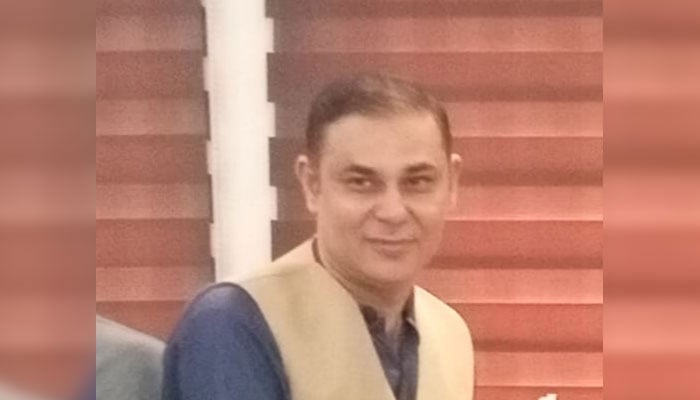SAI chief calls for faster refunds, digital reforms to support industry growth
KARACHI: President of the Site Association of Industry (SAI) Ahmed Azeem Alvi, while acknowledging some positive aspects of the federal budget, emphasised the need for clearer policies, timely tax refunds, and digital reforms to better support exporters and industrial growth.
Alvi noted that the government had recognised the necessity for relief in the customs sector and planned to implement reforms. However, he cautioned that the full impact of these measures would only become apparent once the detailed budget documents were released.
“The government has addressed our concerns regarding the performance of the freight station and made commitments in this regard,” he said. He also reiterated SAI’s demand for the immediate repeal of the Income Tax Ordinance issued on May 4, expressing hope that the budget papers would clarify the government’s position.
One of Alvi’s primary concerns was the delayed issuance of income tax refunds to exporters. He urged the government to ensure that refunds are processed within 15 working days through the banking system. “Delays force exporters to bear additional costs and face liquidity issues,” he said. “A transparent and corruption-free system is essential for timely disbursements.”
The SAI president underscored the importance of digitalisation, transparency, and a one-window operation to reduce bureaucratic hurdles. He pointed out that 69 federal and provincial agencies currently conduct factory inspections, creating significant inefficiencies. “Reducing the number of inspections will allow industries to concentrate on growth rather than compliance,” he noted.
However, Alvi expressed disappointment that the budget had not adequately addressed digitalisation and one-window reforms -- critical steps for improving the ease of doing business.
He also criticised the government for failing to broaden the tax base while setting ambitious revenue targets. “Instead of supporting Karachi, the focus remains on regions with poor recovery rates,” he said, calling for policies that further strengthen Karachi’s tax contributions.
Alvi condemned the inclusion of circular debt charges in Karachi’s electricity bills, calling it unjust. “Despite expectations, the government has not removed these charges, making Karachi one of the most expensive cities in terms of electricity costs,” he said, holding both the federal and Sindh governments accountable for their inaction.
-
 James Van Der Beek's Friends Helped Fund Ranch Purchase Before His Death At 48
James Van Der Beek's Friends Helped Fund Ranch Purchase Before His Death At 48 -
 King Charles ‘very Much’ Wants Andrew To Testify At US Congress
King Charles ‘very Much’ Wants Andrew To Testify At US Congress -
 Rosie O’Donnell Secretly Returned To US To Test Safety
Rosie O’Donnell Secretly Returned To US To Test Safety -
 Meghan Markle, Prince Harry Spotted On Date Night On Valentine’s Day
Meghan Markle, Prince Harry Spotted On Date Night On Valentine’s Day -
 King Charles Butler Spills Valentine’s Day Dinner Blunders
King Charles Butler Spills Valentine’s Day Dinner Blunders -
 Brooklyn Beckham Hits Back At Gordon Ramsay With Subtle Move Over Remark On His Personal Life
Brooklyn Beckham Hits Back At Gordon Ramsay With Subtle Move Over Remark On His Personal Life -
 Meghan Markle Showcases Princess Lilibet Face On Valentine’s Day
Meghan Markle Showcases Princess Lilibet Face On Valentine’s Day -
 Harry Styles Opens Up About Isolation After One Direction Split
Harry Styles Opens Up About Isolation After One Direction Split -
 Shamed Andrew Was ‘face To Face’ With Epstein Files, Mocked For Lying
Shamed Andrew Was ‘face To Face’ With Epstein Files, Mocked For Lying -
 Kanye West Projected To Explode Music Charts With 'Bully' After He Apologized Over Antisemitism
Kanye West Projected To Explode Music Charts With 'Bully' After He Apologized Over Antisemitism -
 Leighton Meester Reflects On How Valentine’s Day Feels Like Now
Leighton Meester Reflects On How Valentine’s Day Feels Like Now -
 Sarah Ferguson ‘won’t Let Go Without A Fight’ After Royal Exile
Sarah Ferguson ‘won’t Let Go Without A Fight’ After Royal Exile -
 Adam Sandler Makes Brutal Confession: 'I Do Not Love Comedy First'
Adam Sandler Makes Brutal Confession: 'I Do Not Love Comedy First' -
 'Harry Potter' Star Rupert Grint Shares Where He Stands Politically
'Harry Potter' Star Rupert Grint Shares Where He Stands Politically -
 Drama Outside Nancy Guthrie's Home Unfolds Described As 'circus'
Drama Outside Nancy Guthrie's Home Unfolds Described As 'circus' -
 Marco Rubio Sends Message Of Unity To Europe
Marco Rubio Sends Message Of Unity To Europe




